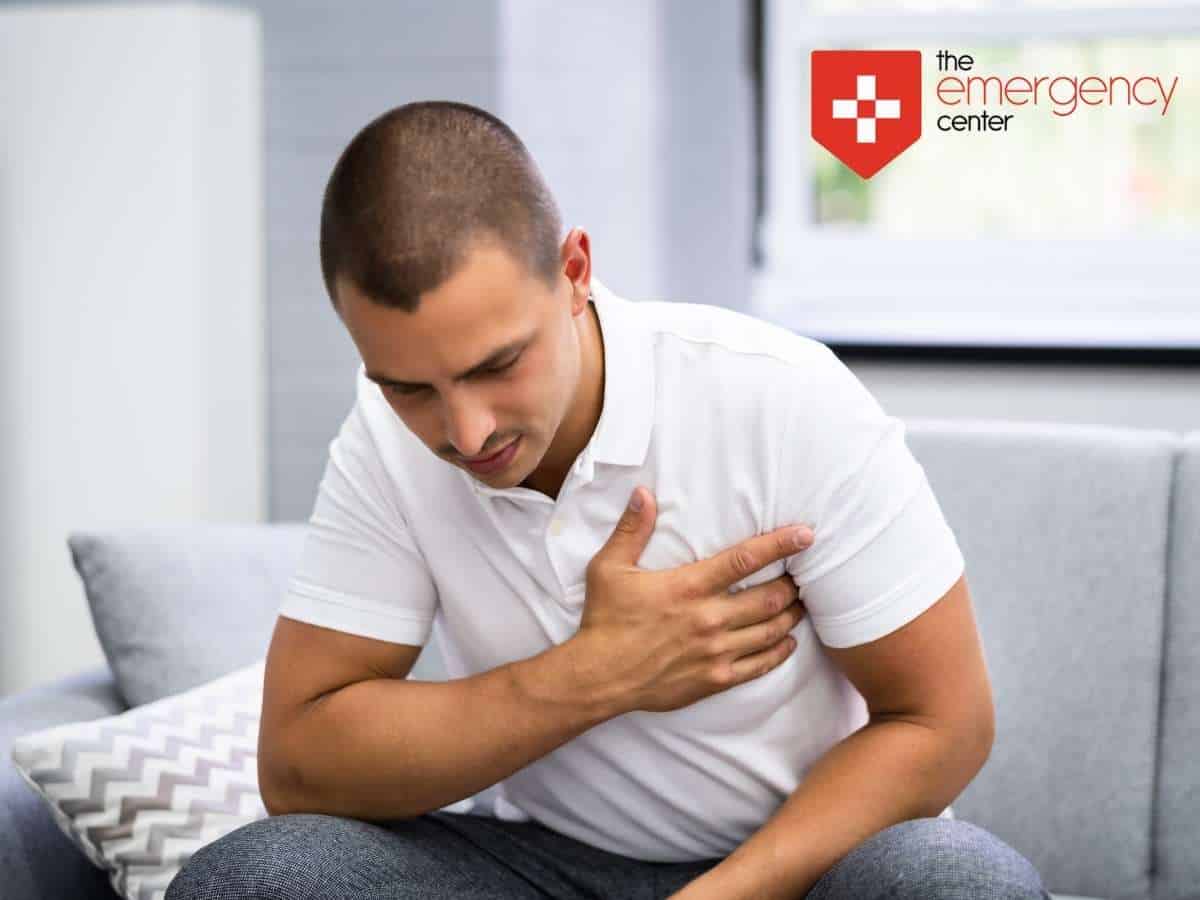A heart attack is a serious and life-threatening condition. It needs to be assessed and treated quickly. A freestanding emergency room like The Emergency Center treats medical emergencies right away. In a traditional hospital, you may waste precious time sitting in a waiting room. Do you know the signs and symptoms?

Men and women sometimes experience different symptoms during a heart attack. Some of the most common symptoms men experience are chest pain or discomfort (like pressure or heaviness), shortness of breath and/or discomfort in the arm (or arms), back, neck or jaw.
Other, less common symptoms are dizziness, nausea, cold sweats, and lightheadedness.
While women do often experience chest pain or discomfort during a heart attack, it may not be the same type of pain a man feels. According to the American Heart Association, the type of chest discomfort a woman may have is “uncomfortable pressure, squeezing, fullness, or pain in the center of your chest. It lasts more than a few minutes, or goes away and comes back.”
In addition to chest pain, it is common for women to have shortness of breath, neck, jaw, or back pain, and nausea and/or vomiting. These symptoms tend to be less common for men.
There are three types of heart attacks:
A NSTEMI, in non-technical terms, is a partial blockage of an artery or arteries, while an STEMI is a complete blockage. They are named for the changes seen on an electrocardiogram. STEMI and non-STEMI heart attacks cause permanent damage to the heart.
In a coronary artery spasm, or unstable angina, there are spasms in one or more of the arteries. The artery tightens to the point where it doesn’t allow a sufficient amount of blood to flow. This type of heart attack is occasionally called a silent heart attack and is sometimes confused with indigestion or muscle pains. While this type of heart attack doesn’t generally cause permanent damage, it’s dangerous because it isn’t always recognized for what it is.
If you’re experiencing symptoms of a possible heart attack, you should expect doctors to order an electrocardiogram (EKG). You should also anticipate blood tests like a troponin level, CK (or CK-MB), and serum myoglobin. These tests are to check for proteins that are markers of a heart attack.
Treatment varies, depending on the type of heart attack and what diagnostic testing finds. However, if a heart attack is suspected, treatment may start with aspirin, oxygen therapy, and nitroglycerin. Once all the tests can be performed, your doctor may prescribe medication or surgical treatment.
If you’re experiencing any of these symptoms, please seek medical treatment immediately. Call 9-1-1 or go to the nearest emergency room:
• Chest pain or discomfort.
• Unexplained pain in other areas of the body like the jaw, arm (or arms), neck, or back (more common in women).
• Shortness of breath.
• Nausea and/or vomiting (more common in women).
If you think you are experiencing a heart attack or other medical emergency, call us at 210-485-3644!
Sources
The Emergency Center
San Antonio
11320 Alamo Ranch Pkwy
San Antonio, TX 78253
Phone: 210-485-3644
Conroe
4019 I-45 N,
Conroe, Texas 77304
Phone: 936-247-9457
Experiencing abdominal pain? Learn what it could mean by location and when to visit the…
Is your skin redness a sign of something serious? Learn about different types of skin…
Why are ER wait times so long? An emergency room physician explains key delays and…
Are you aware of the dangers of carbon monoxide? Learn prevention tips, symptoms, and how…
Enjoy winter sports safely! Learn how to prevent injuries & discover when to visit emergency…
Worried about ER visits this New Year’s Eve? Learn top safety tips to avoid common…